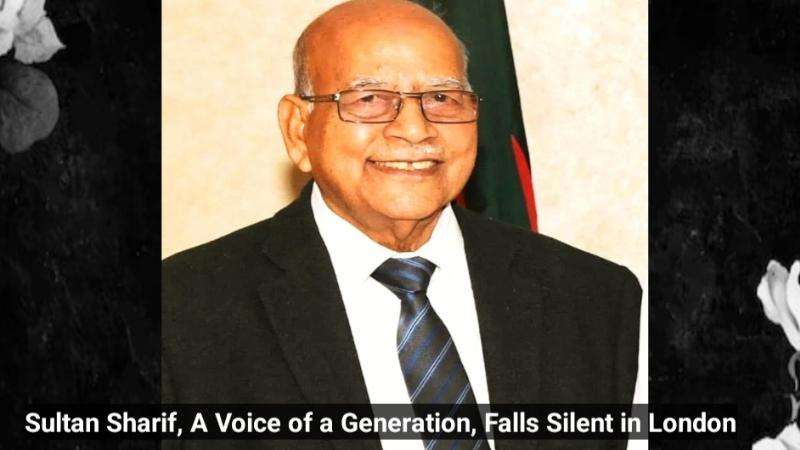Sultan Mahmud Sharif, a revered organizer of Bangladesh's Liberation War and the President of the UK Awami League, has passed away. The veteran freedom fighter died at 3:00 AM on Saturday, August 23, while undergoing treatment at a London hospital. (Inna Lillahi wa inna ilayhi raji'un). He had been suffering from various age-related ailments, including kidney problems, for a long time. He was 85 years old at the time of his death.
Sultan Mahmud Sharif had been serving as the President of the UK Awami League since 2011. He is survived by his two daughters, grandchildren, and numerous admirers.
The news of his death was confirmed by UK Awami League's Joint General Secretary, Anawaruzzaman Chowdhury, at 5:10 AM local time on Saturday. He also stated that Sharif's physical condition had been poor for the past few days. The time for his funeral prayer will be announced later, Chowdhury added.
Sultan Mahmud Sharif was born on January 26, 1941, in the village of Sarukhali, under the Chanpura Union of Kotwali Police Station in Barisal district.
This leader, who served as the UK Awami League's president for 14 years, was known as a very close associate of Sheikh Hasina. Despite his party being in power for a long time, he always remained free from controversy. Due to his simple lifestyle, he earned the respect of the community beyond political affiliations.
Following the death of his wife, Nora Sharif, his illness and deep loneliness seemed to take a toll. Because of this, even as demands for new leadership of the UK Awami League were repeatedly raised by the party, Sheikh Hasina would never give her consent. Out of respect for Sultan Sharif, Sheikh Hasina did not want to remove him by forming a new committee, even though he was very ill. It was out of her wish to honor him that the committee was not disbanded for fourteen years.
Despite his prominent political roles, Sultan Mahmud Sharif was a humble man who cherished his private life. A devoted family man, his two daughters and grandchildren were his pride and joy. Following the death of his beloved wife, Nora, a profound loneliness settled over him, and he often spoke of their enduring love and the void she left behind. He found solace in his community and the people he served, always making time for others despite his declining health. He was a man of integrity, known for his ability to bridge divides and unite people, which earned him respect that transcended political lines. His legacy is one of unwavering dedication, not only to his country but also to the simple principles of kindness and community.








.svg)

_5.jpg)

_3.jpg)